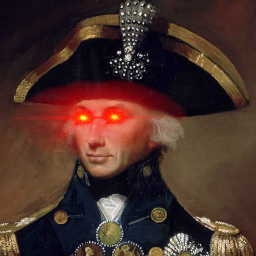So I’m reading The Art of Game Design: A Book of Lenses by Jesse Schell and I’m quite enjoying it. I don’t really have anyone else in my life who shares my game development interests so I thought it might be fun to put together some kind of regular discussion. I’ve got a pretty long reading list, would nice to have someone to talk to. Thoughts?
I’m game.
I’m currently reading “Don’t Make Me Think: Revised Edition” by Steve Krug. The book is primarily about website design, but anyone with half a brain could translate the design principles and main ideas into a game development context. I just finished Chapter 10(?) all about designing usability tests and how to get a feel for where the main issues are with your design.
After that, I’ve got “Design is Storytelling” by Ellen Lupton and “The Animator’s Survival Kit” by Richard Williams queued up.Is it just me or do most games have terrible UI/UX? This sounds like something game devs could benefit from tremendously
It’s just the worst. I hate doing UI. A UX expert would be very high on my wish list of people to work with, lol.
I don’t think game engines make it particularly easy either. I was thinking of trying to integrate web technologies into my engine to try to ease that but it’s pretty complicated
man, I wish I had enough attention span to read books. I just can’t read books. I loose interest pretty quickly. I can read small blog post though.
I’d be up for it. Haven’t worked on games for a while, but I’d like to get back to it.
Basically the same.
Hey, @[email protected], how is the book coming along? Also, and would you care to post part of your reading list?
As for reading list, right now it’s really just a big pile of things, not much order. There’s a lot of recommended reading in this book too that’ll get added I’m sure. You can look at my big mess of a github repo:
https://github.com/GrapeSodaGames/learn/
There’s a million issues in there with book suggestions, as well as my notes in the closed issues. I am planning to put up a little website to contain my knowledge for future reference. I’m really trying to create a habit to Learn In Public so I’m gonna put everything I do up there in that github org. Feedback and contributions of course welcome.
That’s super cool of you to share your notes with the world like that!
Yeah for sure. I’m about a third of the way through “The Art of Game Design: A Book Of Lenses” and it has proven to be a very useful book full of actionable tools to help get the creative juices flowing. The titular “Lenses” each consist of a few questions to ask yourself as you make decisions about your game. Some neat examples:
Lens 007: The Lens of Endogenous Value A game’s success hinges on the players’ willingness to pretend it is important. To use this lens, think about your players’ feelings about items, objects, and scoring in your game. Ask these questions:
- What is valuable to the players in my game?
- How can I make it more valuable to them?
- What is the relationship between value in the game and the players’ motivations?
Remember, the value of the items and score in the game is a direct reflection of how much the players care about succeeding in your game. By thinking about what the players really care about and why, you can often get insights about how your game can improve.
LENS 009: The Lens of the Elemental Tetrad To use this lens, take stock of what your game is truly made of. Consider each element separately and then all of them together as a whole. Ask yourself these questions:
- Is my game design using elements of all four types?
- Could my design be improved by enhancing elements in one or more of the categories?
- Are the four elements in harmony, reinforcing each other and working together toward a common theme?
LENS 015: The Lens of the Eight Filters To use this lens, you must consider the many constraints your design must satisfy. You can only call your design finished when it can pass through all eight filters without requiring a change. Ask yourself these key questions:
- Artistic Impulse (“Does this feel right to me?”)
- Demographics (“Will the intended audience like it?”)
- Experience Design (“Is this well designed?”)
- Innovation (“Is this novel?”)
- Business and Marketing (“Will it be profitable?”)
- Engineering(“Is it technically possible?”)
- Social/Community (“Does it meet our social and community goals?”)
- Playtesting (“Do the playtesters like it?”)
In some situations, there may be still more filters; for example, an educational game will also have to answer questions like “Does this game teach what it is supposed to?” If your design requires more filters, don’t neglect them.
The author has worked on a number of experiences for Disney that he relays as well, creating bespoke hardware and incredibly immersive short experiences. His emphasis on cross-domain knowledge and attention to detail in all aspects really appeals to me.
I’ve had to take a little break, got some life stuff going on, but I’m hoping to finish this book by the end of the month.
I am reading Tomorrow and Tomorrow and Tomorrow, a novel about game developers (or something, I’m only a few chapters in). Not very technical but I’m definitely enjoying it so far; it is a nice view into the human side of the job/lifestyle
Yeah, that sounds interesting.



